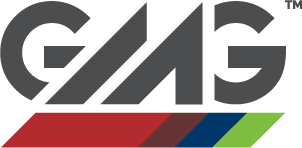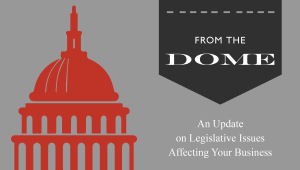Minnesota’s 92nd legislative session ended their 2021 regular session on May 17th without a budget. The Governor and Legislative leaders instead released a budget framework with a target of $52 billion for the next biennium. Lawmakers worked for four weeks on final details largely outside of the public eye until they convened a special session on June 14th. All spending bills were passed and signed into law by June 31st.
The need for a special session was largely due to a late infusion of funding from the American Rescue Plan Act (ARPA) that was signed into law by President Biden on March 11, 2021. Roughly $8.5 billion was allocated in the bill to the State of Minnesota for various programs.
Budget
A final budget of $52 billion was signed into law on June 31, 2021. This biennial budget is an increase of approximately $1.3 billion over the previous budget – much of that one-time funding from ARPA. Included in the bill are direct tax cuts of $644 million to people who lost jobs and employers who kept people working during the pandemic.
Paycheck Protection Program
The final tax bill included full conformity to federal tax law with regards to the Paycheck Protection Program at a cost of roughly $375 million in fiscal year 2022. Businesses and organizations that received PPP loans will not be subject to either federal or state income tax on the amount of the loan received.
Unemployment Benefits
Unemployment benefits of up to $10,200 will not be subject to state income tax. This affects about 500,000 Minnesotans at a cost of about $235 million.
Property Taxes
The exclusion for commercial and industrial (C/I) state property taxes was increased from $100,000 to $150,000. Also, the state’s C/I property tax levy was decreased by $20 million.
Emergency Powers
Governor’s Walz’s peacetime emergency ended on July 1, 2021. This was done in coordination with the USDA to ensure that SNAP benefits would continue to be made available to Minnesotans in need – something that previously required an emergency declaration. The Governor preserves his ability to declare future peacetime emergencies.
GreenSeam
Funding for GreenSeam was once again included in the omnibus agriculture bill signed into law by Governor Walz on June 26, 2021. SF 1517 was chief authored by Sen. Nick Frentz (DFL-North Mankato) and co-authored by Sen. Rich Draheim (R-Madison Lake) and Sen. Michael Goggin (R-Red Wing). Sen. Goggin noted during the Agriculture committee on March 17th that “this is a great bill… GreenSeam is doing great work and we have the results to prove it.” GreenSeam will receive $75,000 in each of the next 2 years.
Childcare
Adequate childcare continues to be a challenge across the state and the nation. Minnesota received $520 million in federal funds that the will be used to invest in childcare provider grants and increase support to families. Additionally, $22.5 million was allocated for the construction of new and expansion of existing childcare facilities – $5.5 million in funds will be dedicated specifically for Greater Minnesota grants and other programs to help ease the childcare burden felt by parents and providers throughout the state.
Jobs & Economic Development
Some of the most significant new funding came from the jobs and economic development bill. The Department of Employment and Economic Development (DEED) will oversee a slew of new programs designed to boost businesses that were affected by the pandemic and some of which have not previously received any funding assistance. The Main Street Economic Revitalization Program received $80 million in new, one-time funds that will be made available as grants of up to $750,000 or loans of up to $2 million. The first round of applications are currently open and are due on August 31st. An additional $70 million of COVID-19 relief grants will be made available to small businesses that have been impacted by and continue to face financial hardship due to the COVID-19 public health emergency. Grants will range from $10,000 to $25,000 per business, based on the number of employees. Applications will open in the fall of 2021. Lastly, $250 million of “pandemic bonuses” will be distributed to frontline workers. A working group has been formed to discuss who qualifies and for how much. More to come.
Transportation
As a welcome relief for Southern Minnesota this session was that Highway 14, a constant topic of conversation for many decades, has now been fully funded as a 4-lane highway from New Ulm to Rochester. The Legislature this year did approve a $7.27 billion transportation bill. Included in that was $250 million in the Corridors of Commerce program. A 5 cent gas tax increase indexed with inflation proposed by the House did not make the final bill. Governor Walz has previously proposed a 20-cent gas tax increase in 2019 that was not adopted.
Local Option Sales Tax
The Legislature authorized 19 communities across the state to adopt a 0.5% local option sales tax for various projects. Locally, this included the city of St. Peter which will use $9.1 million in funds to construct a new fire station.
State Government
The Legislative Auditor will conduct a special review of the state’s response to COVID-19. The analysis will include programs such as testing, vaccination, public outreach, contracting and purchasing, and methodology used in modeling and forecasting the course of the outbreak. The audit must consider whether a program, service, or activity was not efficiently or successfully implemented and provide recommendations to for process improvements to facilitate the state’s response to future infectious disease outbreaks.
E-12 Education
The E-12 education bill contained the largest increase in the state’s per-pupil funding formula in 15 years: 2.5% the first year and 2% the second, resulting in about $296 per pupil for school districts. The bill was passed unanimously in the Republican-controlled Senate.
Higher Education
A budget of $3.51 billion was approved that caps tuition increases to 3.5% at Minnesota State and University of Minnesota systems over the next two academic years.
Public Safety
The final public safety bill excluded much of the most controversial provisions that both chambers could not agree on. Many House DFL members had hoped to include additional police accountability provisions along with increased restrictions on pretextual stops, where police pull someone over for minor traffic violations. Most of these did not survive negotiations with the Republican-controlled Senate. The final bill did add regulations on the use of no-knock warrants, requirements of 911 operators to refer some calls to mental health crisis teams, and require chiefs of police to report disciplinary action against officers to the POST board.
The 92nd Legislature reconvenes on January 31, 2022.
Election 2022: all 201 House and Senate seats will be up for re-election on November 8, 2022.





